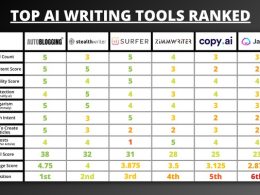AI adoption in corporate real estate is accelerating, with JLL reporting that usage has surged from below 5% to 92% in only three years. Yet despite this rapid shift, just 5% of firms say they are achieving the results they expected.
Energy efficiency specialists at Exergio note that the issue isn’t the technology itself, but how it is deployed. While energy management ranks as one of the most effective areas for AI in buildings, most organisations stop short of allowing AI to adjust heating, ventilation, or cooling systems automatically — limiting its impact.
JLL’s report, Reality Check: The True Pace and Payoffs of AI Adoption in Corporate Real Estate, draws on insights from over 1,000 real estate leaders across 16 global markets. Its findings highlight a clear gap between AI adoption and AI effectiveness, emphasising the need for more advanced, autonomous operational use.
The report shows that companies are no longer debating whether to use AI – the question now is where it can make a real difference. That becomes clearer when looking at the specific tasks AI is being assigned inside buildings.
Among 27 AI applications in real estate, energy management ranks second overall, together with data workflows and portfolio optimization. For many organizations, it remains the most measurable use case, bringing lower energy bills and fewer wasted kilowatt-hours.
According to JLL, 93% of occupiers list sustainability and energy efficiency as the main drivers for AI adoption, with automation in HVAC systems already producing the clearest ROI. Yet many firms still approach energy AI as an experiment rather than a permanent operational tool.
While JLL’s survey captures executive expectations, Exergio, a firm that develops AI-based tools for energy efficiency in commercial buildings, says companies should focus on the data they already have and how to use it.
“Each site we manage generates tens of thousands of data points every day – temperature, flow, pressure, CO₂, and occupancy – giving algorithms the context to adjust systems continuously,” said Donatas Karčiauskas, the CEO of Exergio. “And our success rate is significantly higher than the 5% mentioned in the report. The secret is simple, we just have to use AI thoughtfully.”
Karčiauskas adds that the data-driven approach routinely cuts HVAC energy waste by 20–30% and saves more than €1 million annually in large commercial sites, all achieved through software alone.
“JLL is right that many companies don’t see results. However, that’s not a failure of AI, but rather a sign that most organizations still haven’t integrated it into their energy systems or use it on a surface level,” explained Karčiauskas. “When algorithms work with live data instead of static reports, they start improving the building hour by hour. It always leads to less waste and steadier conditions for the people inside.”
Karčiauskas argues that the gap highlighted in the JLL report is not about whether buildings are “smart” or newly built, as most commercial properties already have central automation systems in place.
“Many of our best results come from older, mixed-age buildings rather than new ‘smart’ properties,” said Karčiauskas. “Connecting AI to existing automation systems can deliver equal or greater savings than in newly renovated properties – contradicting the idea that only ‘smart buildings’ can host smart software.”
Both JLL and Exergio experts agree that the next five years will determine how AI reshapes real estate. But while JLL focuses on strategic readiness, Exergio emphasizes that choosing AI tools can determine success.
“AI doesn’t need perfect conditions – it needs data, feedback, and measurable results. In that light, the 5% success rate isn’t proof that AI fails; it shows that most organizations haven’t yet applied it where it works best. We don’t need new algorithms but smarter daily routines to make them run efficiently,” concluded Karčiauskas. “There’s a lot of AI hype, but among these companies, some already achieve results across most of their use cases.”









